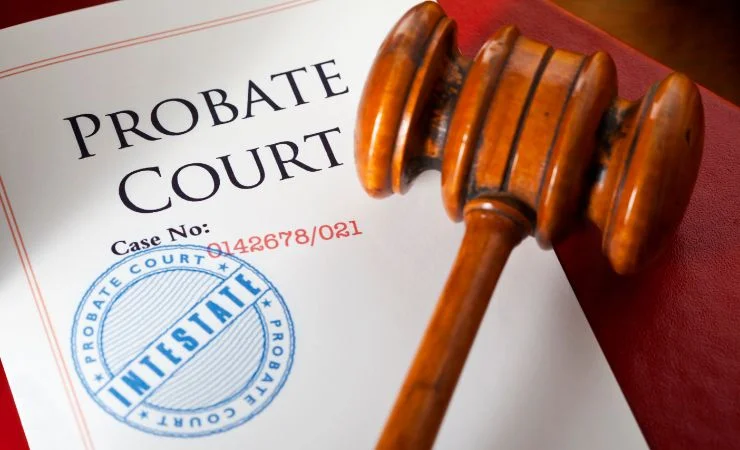Why Is Probate Rejected in California?

Losing a family member is always challenging, especially if their assets are split up according to their will. The probate process could be necessary to hasten the distribution of assets, depending on the terms of a relative’s estate plan. The probate process is governed by a set of laws in every state, including California. Understanding what makes these claims solid, as well as how they can be rejected, is critical for filing a complete, strong probate petition with the court.
What Is Probate?
Probate is the process of distributing assets after a will has been made. At this stage, the will is recognized as legal, and the appointed executor begins dividing the assets among the beneficiaries specified in the document. Anything from keepsakes and personal items to real estate may be distributed during this process according to the directives given by the deceased. Depending on the total amount of money in the estate, the probate process may be optional. If the value of one estate is less than $166,250.00, neither the executor of a will nor the people it names must go through the probate process. However, if the value of an estate exceeds $166,250.00, the probate procedure is required.
Can an Estate Avoid Probate?
California usually requires estates to go through probate. However, there are two distinct processes for estate probate. If the estate’s value is less than $166,250, simplified procedures may be applied. If assets are connected to a living owner or beneficiary, probate may not be required. For instance, the designated beneficiary of a life insurance policy would be transferred automatically. The surviving spouse would receive the couple’s property. Although complicated, avoiding probate is possible. The best method to achieve this is to put all assets into a living trust.
The trust’s assets will automatically pass to the beneficiaries someone chooses when they pass away if they name one or more. Another choice is to designate assets as payable on death or to appoint a beneficiary, as is the case with life insurance and bank accounts. Jointly owned property immediately passes to the remaining owner. Property investments with transfer-on-death deeds may occasionally be exempt from probate.
Most Common Reasons for Probate Rejection
Supplemental documentation is necessary to address any problems or flaws in the application after the registrar rejects it. In certain difficult matters, the attorney must obtain a court order through a written request or by appearing in court to discuss the issue with a judge. There are several common grounds for denial by the probate registry:
- Including assertions in the supporting documentation that are contradictory or unclear, failing to disclose assets, or failing to report properties held in trust or subject to a resulting trust.
- Failure to secure a bond order as required by WESA Section 128.
- Serving the notice less than 21 days before the application is filed. In some instances, dates on notices or affidavits are erroneously labeled, which causes the registrar to question the precise date the notice was sent. Other times, delivery conditions are not satisfied before the submission.
- Failure to properly name parties to ensure that they correspond with supporting documentation and to carefully read the application to catch any typos. An additional affidavit is required to fix these errors.
- Using the incorrect prescribed forms or deleting language that is necessary from the form.
- Covering any alternate names, as well as ensuring that the will’s search results take into account all name variations for the deceased.
- Ensuring that the dates on each of the affidavits used as support are before the date the submission form was submitted. The dates on the exhibits do not line up with the affidavits that are mentioned.
- Omitting crucial details for the Statement of Assets and Liabilities, including the type of asset, where it is held, any accumulated interest, complete civic addresses, and the ownership structure of the asset.
- Not delivering the papers to the Public Guardian and Trustee or waiting for their response.
- Failure to comply with the criteria of the old law for deaths that took place before the new law went into force.
FAQs
Q: Can probate be rejected?
A: In most cases, probate can be rejected based on technical errors in filing or problems with the estate itself. For example, if assets are not listed properly, or if there is a problem connecting the assets to the estate itself, then the probate request can be rejected. This process can be appealed, and with the help of an estate planning lawyer, the appeals process can be simple to navigate.
Q: What does “rejected proposed order” mean?
A: A rejected proposed order typically means that there was a problem either with the filing of the order or with the documents submitted to the court. Often, filing paperwork for the same estate can accidentally be filed as a new case, causing both filings to get rejected. Any rejections can be appealed and resubmitted to the court with the correct information.
Q: What are the pitfalls of probate?
A: Probate can be helpful in deciding which assets go to which beneficiaries. However, the process can be concerning for those looking to keep their family affairs private, with probate filings bringing their estates to the public. The probate process can also take a long time to settle, and the cost of these legal services may be too much for some.
Q: How much do probate referees make in California?
A: Probate Referees, who serve a similar function to lawyers, are not given a salary but instead are compensated directly by the estate, up to a limit of $10,000 per estate, for services rendered. From this compensation, the referee is required to cover all costs, including rent, staff wages, office expenditures, etc.
Getting Started With the Appeals Process
Probate rejection can be hard to process, especially for families still grieving the loss of their loved ones. Fortunately, with the right legal team, the appeals process can be fast, easy, and beneficial to those seeking closure. At Sweeney Probate Law, we can help analyze a case and fix any issues that could have caused a probate petition to get rejected. Visit our website and contact us now to get started with the appeals process.







